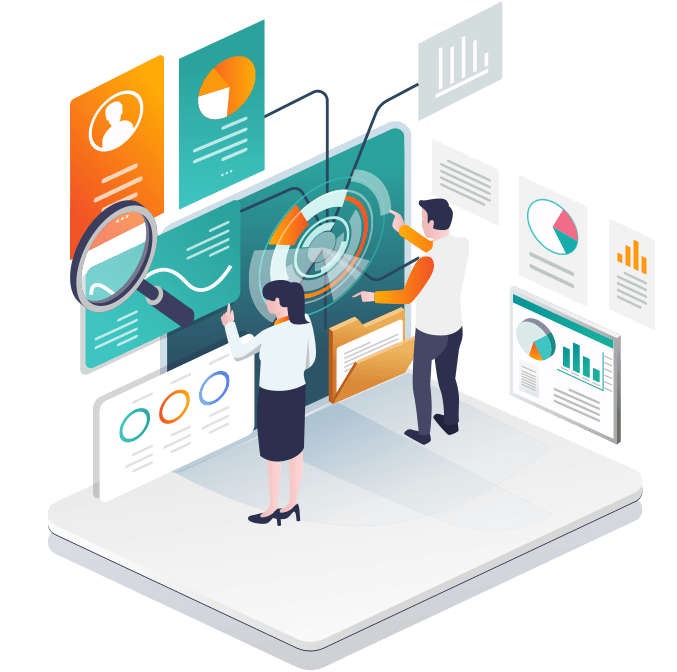
Technology is always advancing, but if we don’t use it to help us reshape the way we work, we risk being left behind.
With a growing demand for accurate and timely financial insights, accounting professionals must stay tuned to the latest trends.
That’s where we come in!
We’re here to help you learn all you need to know about the latest updates to technology that may impact your work.
Artificial intelligence and automation
Artificial intelligence (AI) is something we hear about a lot, but how can it be used to help accounting professionals?
Well, when used effectively AI can be used to automate a variety of your daily tasks and in its simplest iteration data entry.
It can also be a useful tool to minimise the risks of errors and fraud by identifying any anomalies in the data and raising alerts.
With AI taking over these tasks, it provides more time for employees to focus on their other responsibilities that may require a more strategic outlook and, in many cases, allow the team to be re-trained and experience more diverse assignments.
Client portals and file sharing
Client portals are secure websites that make life easier for both clients and accountants and help strengthen rapport and collaborate.
Imagine Nick, a small business owner, needs to review his latest financial statements to prepare for a meeting. Instead of calling his accountant and waiting for them to email the documents, he logs into his client portal.
Within seconds, he has access to all his financial statements, invoices, and other valuable information.
Meanwhile, his accountant, Leah, is spared the usual back-and-forth of emails and phone calls. She no longer needs to dig through files or send repeated reminders for documents.
With the client portal, all of Nick’s information is organised and accessible, allowing Leah to focus on providing better financial advice and services.
Technology also provides a secure way for accountants to share files with both their clients and each other. No more waiting for somebody to finish a document or making multiple copies of the same one to add your own notes, you can work on them simultaneously.
File sharing can also minimise the risk of errors and fraud by ensuring that only authorised personnel have access to the documents.
Robo-advisory
Robo-advisory uses advanced algorithms to provide financial advice and manage tasks automatically.
By using AI and machine learning, these systems can learn from data and make smart decisions, offering tailored and cost-effective recommendations.
This technology is changing how accountants manage workloads. Firms can now offer robo-advisory services that give clients real-time, personalised advice based on their financial goals risk levels and even wish lists.
Take John for example. He wants to grow his business but is struggling with a starting point as to how he would best achieve this.
He could use a robo-advisory service offered by his accounting firm and once he’s entered his goals and risk preferences, the robo-advisor would craft a tailored strategy for him, allowing the client and accountant to have a more strategic and valuable conversation about how he can achieve his goals.
By doing this he could also receive instant, ongoing updates and advice through a secure online portal, making it easy for him to track his progress.
For the accounting firm, the robo-advisory service automates routine tasks, lowering costs and allowing accountants to focus on more personalised client interactions.
Natural language processing
Natural language processing (NLP) comes under the AI umbrella that helps computers understand and interact with human language.
In accounting, NLP can automate tasks like entering data, creating reports from text, and analysing unstructured documents such as emails and legal papers.
With this technology, an accountant could upload documents, and the NLP algorithms will swiftly extract key financial terms, dates, and other useful information.
The software can also automatically update the firm’s accounting databases with this information, ensuring accuracy and efficiency in record time.
Meanwhile, the firm’s NLP-driven chatbot can handle routine client enquiries, for instance providing immediate responses about their invoice status or appointment scheduling.
This frees up accountants to focus on strategic financial advice and personalised client interactions, ultimately enhancing both client satisfaction and operational effectiveness.
If you want to future-proof your accounting processes, get in touch with our team and we’ll discuss how our suite of technology can fill the gaps in your existing practice management software can help you.